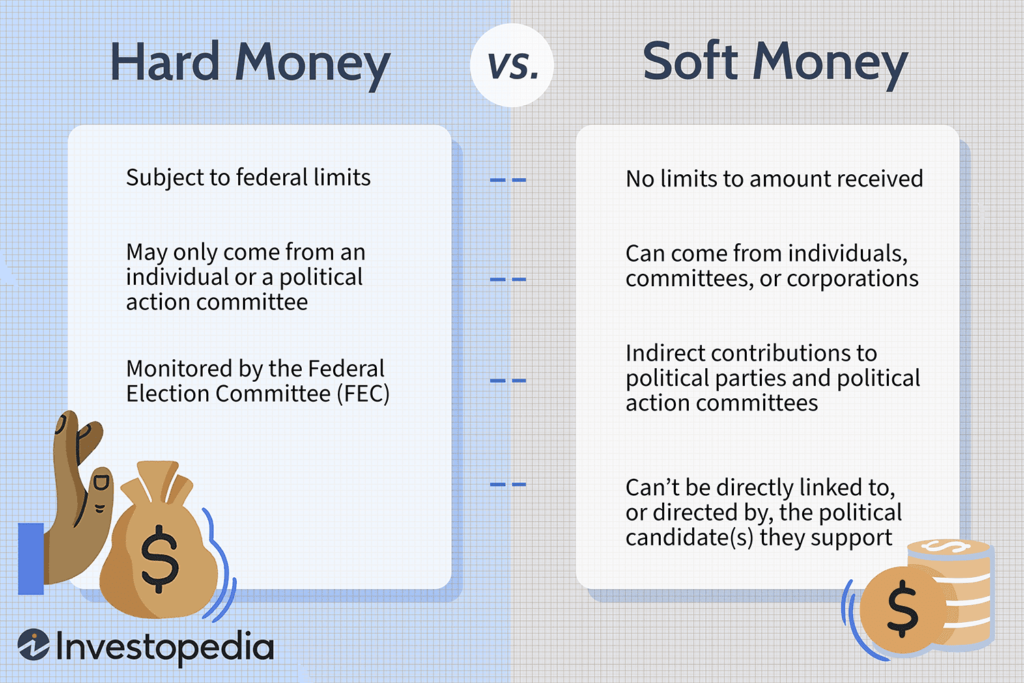When utilizing a hard money loan, it is imperative to understand any potential tax implications. This article explores the tax ramifications associated with hard money loans, shedding light on key considerations that borrowers should be mindful of. By delving into the complexities and nuances of taxation in relation to these loans, this piece aims to provide a comprehensive understanding of the potential tax consequences that borrowers may face.
1. Overview of hard money loans
1.1 Definition of hard money loans
A hard money loan is a type of loan that is often used by real estate investors or individuals who need quick access to funds. Unlike traditional bank loans, hard money loans are typically funded by private investors or lending companies. These loans are backed by the value of the property itself rather than the borrower’s creditworthiness, making them an attractive option for borrowers with less than perfect credit or unique financial situations.
1.2 Main features of hard money loans
There are several key features that distinguish hard money loans from traditional bank loans. Firstly, hard money loans usually have higher interest rates compared to conventional loans. This higher interest rate compensates for the increased risk associated with these loans. Secondly, hard money loans typically have shorter terms, often ranging from six months to a few years. Additionally, hard money loans may require the borrower to provide a larger down payment or have a higher equity stake in the property.
2. Tax treatment of interest expense on hard money loans
2.1 Deductibility of interest expense
The tax treatment of interest expense on hard money loans may vary depending on the purpose of the loan. If the hard money loan is used for business or investment purposes, the interest expense may be tax-deductible. This means that the borrower can deduct the interest paid on the loan from their taxable income, potentially reducing their overall tax liability.
2.2 Limitations on interest deductions
However, it’s important to note that there are limitations on the deductibility of interest expenses. The Tax Cuts and Jobs Act (TCJA) implemented certain restrictions on interest deductions, including a limitation known as the “business interest expense limitation.” Under this provision, businesses are generally allowed to deduct business interest expenses up to 30% of their adjusted taxable income. Any interest expense that exceeds this limit may be carried forward to future years.
2.3 Potential alternative tax treatment
In some cases, individuals may use hard money loans for personal purposes, such as financing a primary residence or purchasing a second home. In these situations, the tax treatment of interest expense may differ. It’s important to consult with a tax professional to determine whether the interest expense on a hard money loan used for personal purposes is tax-deductible or subject to any limitations.

3. Tax implications of loan origination fees
3.1 Treatment of loan origination fees as deductible expenses
Loan origination fees, also known as points, are often charged by lenders to cover the cost of processing the loan. The tax treatment of loan origination fees can vary depending on how they are classified. If the loan origination fees are considered to be deductible expenses, the borrower may be able to deduct these fees over the term of the loan, similar to the deductibility of mortgage interest.
3.2 Potential capitalization of loan origination fees
In some cases, loan origination fees may need to be capitalized rather than deducted as expenses. Capitalization means that the fees are added to the cost basis of the property and may be depreciated or amortized over time. The decision on whether to deduct or capitalize loan origination fees depends on various factors, including the purpose of the loan and the borrower’s particular circumstances. Consulting with a tax professional can help determine the appropriate tax treatment for loan origination fees.
4. Effects on capital gains tax
4.1 Impact on short-term capital gains tax
When a property is sold for a profit within a year of its acquisition, the resulting gain is considered a short-term capital gain. Hard money loans can potentially impact the tax liability associated with short-term capital gains. If the hard money loan is used to finance the acquisition of a property that is held for investment or business purposes, any interest paid on the loan may be considered an expense that offsets the capital gains. This can potentially lower the tax liability associated with short-term capital gains.
4.2 Impact on long-term capital gains tax
On the other hand, if a property is held for more than a year before being sold, any gain from the sale is considered a long-term capital gain. The tax implications of hard money loans on long-term capital gains are generally similar to those of short-term capital gains. Interest paid on the hard money loan can potentially be deducted as an expense, reducing the overall tax liability on long-term capital gains.

5. Tax consequences of default
5.1 Tax treatment of forgiven debt
In the unfortunate event of defaulting on a hard money loan, there may be tax consequences to consider. When a lender forgives or cancels a debt, the IRS generally treats the amount forgiven as taxable income to the borrower. This means that if a hard money loan is forgiven, the borrower may be required to report the forgiven amount as income on their tax return. However, certain exceptions and exclusions may apply, such as those related to bankruptcy or insolvency. It’s crucial to seek advice from a qualified tax professional to fully understand the tax implications of forgiven debt.
5.2 Potential tax consequences in case of foreclosure
In the event of foreclosure on a property financed by a hard money loan, the tax consequences can also be significant. If the property is sold at a loss, the borrower may be able to deduct the loss as a capital loss on their tax return. However, if the property is sold at a gain, any gain realized may be subject to capital gains tax. It’s important to consult with a tax professional to understand the specific tax implications in case of foreclosure.
6. Reporting requirements for hard money loans
6.1 Forms and schedules to report the loan
When it comes to reporting hard money loans on tax returns, there are several forms and schedules that may need to be completed. The specific forms required may vary depending on the borrower’s individual circumstances. Generally, borrowers will need to report the details of the loan, including the loan amount, interest paid, and any deductions claimed, on their personal or business tax return. It’s essential to keep accurate records and consult with a tax professional to ensure compliance with reporting requirements.
6.2 Reporting interest income
On the other side of the equation, lenders who provide hard money loans are generally required to report the interest income they receive from borrowers. This income should be reported on the appropriate tax forms and schedules, such as Schedule B for individual lenders or Form 1065 for partnerships. Lenders should keep proper records of the interest income earned from hard money loans to ensure accurate reporting and compliance with tax regulations.

7. Tax considerations for real estate investors
7.1 Different tax treatment for investment properties
Real estate investors who utilize hard money loans for investment properties should be aware of the unique tax considerations involved. Unlike primary residences, investment properties are subject to different tax rules. Expenses related to the investment property, including interest paid on hard money loans, may be deductible against rental income or capital gains. Real estate investors should consult with a tax professional to understand the specific tax treatment of their investment properties and how hard money loans may impact their overall tax liability.
7.2 Utilizing 1031 exchanges to defer taxes
Another important tax strategy for real estate investors is the use of 1031 exchanges. A 1031 exchange allows investors to defer capital gains tax by reinvesting the proceeds from the sale of an investment property into a similar property. If a real estate investor has used a hard money loan to finance the acquisition of an investment property, they can still take advantage of a 1031 exchange to defer taxes on the gains realized upon the sale of the property. However, it’s crucial to follow the strict guidelines and requirements of a 1031 exchange and seek professional tax advice to ensure compliance.
8. Tax planning strategies
8.1 Consultation with a tax professional
Navigating the tax implications of hard money loans can be complex, and it’s crucial to seek guidance from a qualified tax professional. A tax professional can provide personalized advice based on your specific circumstances and help you optimize your tax planning strategies. They can ensure compliance with tax laws and regulations, maximize deductions, and minimize potential tax liabilities.
8.2 Maximizing deductions
One key tax planning strategy for borrowers of hard money loans is to maximize available deductions. This includes deducting interest expenses, loan origination fees, and any other eligible expenses associated with the loan. Keeping meticulous records and maintaining organized documentation is essential for claiming these deductions and reducing your overall taxable income.
8.3 Timing of expenses and income
Timing can also play a significant role in minimizing tax implications. By strategically timing expenses and income, borrowers can optimize their tax situation. For example, if you have control over when to take out a hard money loan or when to make interest payments, you may consider aligning these transactions with your overall tax planning goals. Consulting with a tax professional can help you identify the most effective timing strategies to reduce your tax burden.

9. State-specific tax laws on hard money loans
9.1 Differences in state tax regulations
It’s important to recognize that tax laws and regulations can vary from state to state. Some states may have specific rules regarding the deductibility of interest expenses on hard money loans or the treatment of loan origination fees. Additionally, state tax rates may differ, further impacting the overall tax implications of using hard money loans. To ensure compliance with state tax laws and optimize tax planning strategies, it is crucial to consult with a tax professional who is knowledgeable about the tax regulations in your specific state.
9.2 State-specific deductions and exemptions
In addition to varying tax regulations, states may also offer unique deductions and exemptions that can benefit borrowers of hard money loans. These deductions and exemptions could include special provisions for real estate investors, homeowners, or small business owners. Working with a tax professional who is familiar with the specific tax laws of your state can help you identify any available deductions or exemptions and maximize your tax benefits.
10. Conclusion
10.1 Recap of tax implications
Using hard money loans can have significant tax implications that borrowers need to consider. The deductibility of interest expenses, the treatment of loan origination fees, and the impact on capital gains tax can all affect a borrower’s overall tax liability. Understanding these tax implications is crucial for effective tax planning and minimizing potential tax burdens.
10.2 Importance of understanding tax implications
In conclusion, it is essential for individuals considering or utilizing hard money loans to understand the tax implications associated with these loans. Consulting with a tax professional is strongly recommended to navigate the complex tax rules and regulations surrounding hard money loans. By taking the time to understand the tax implications and implementing effective tax planning strategies, borrowers can optimize their overall tax situation, reduce their tax liability, and ensure compliance with tax laws.




